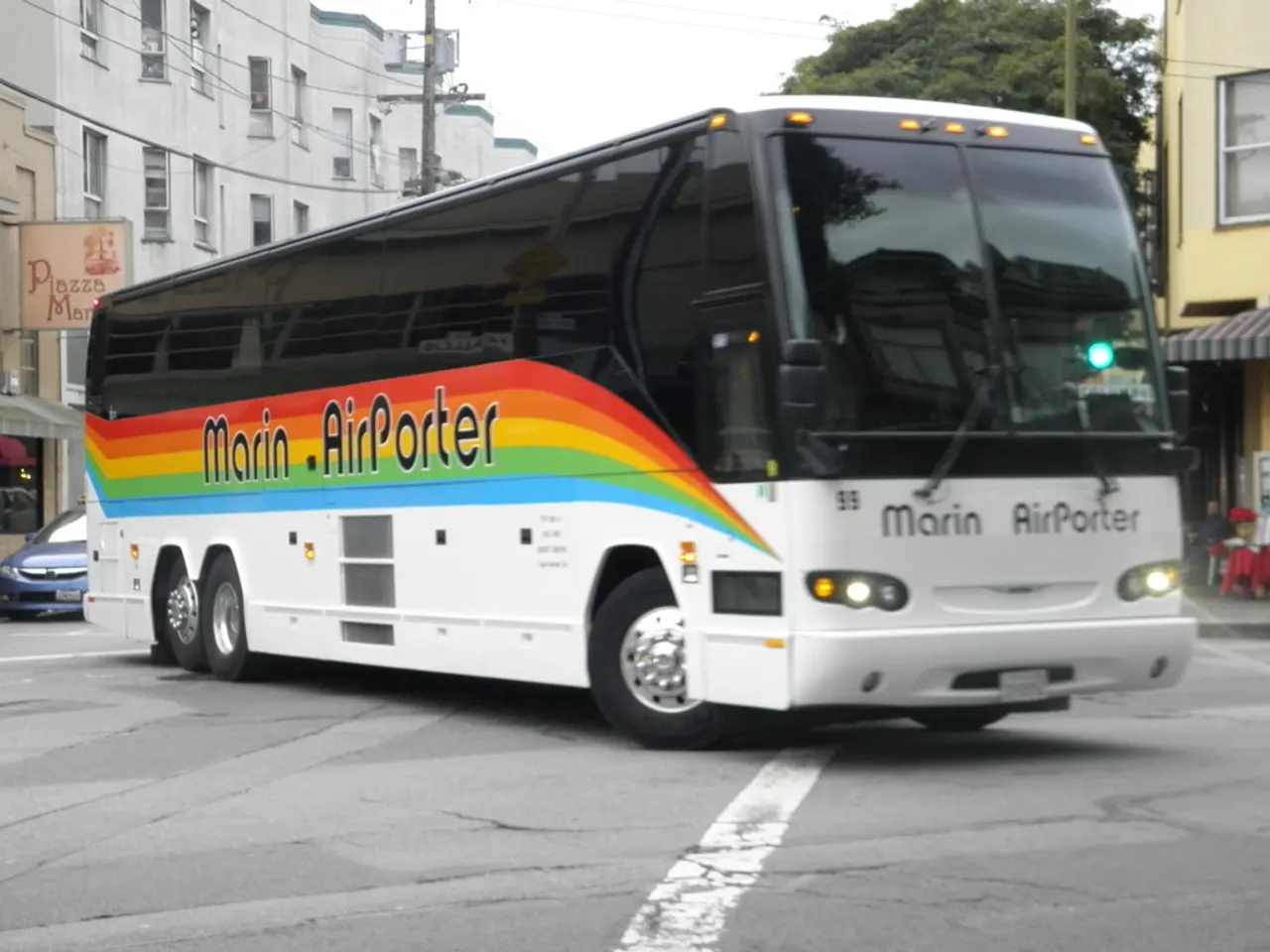Affordable and Eco-friendly Transition: Electric Buses Revolutionizing Campus Transportation at UNILAG
## Electric Buses Revolutionize University of Lagos Commuting
The University of Lagos (UNILAG) has witnessed a significant shift in commuting patterns following the introduction of electric buses by Chart Eco Global Services and Ogata Global Resources in December 2024 [1]. Prior to the deployment, campus cabs were the primary mode of transport, but the arrival of the electric buses has swiftly altered this trend.
The electric bus service offers **affordable fares** at ₦100 per ride, significantly less than the ₦200 cab fare post-Nigeria’s fuel subsidy removal [1]. The buses also boast **convenient routes**, with stops closer to key academic buildings, making them a popular choice among students. Although some complaints about waiting times due to high demand persist, the switch to buses is driven by both cost savings and convenience, as students no longer need to negotiate fares or wait for multiple passengers to fill cabs [1].
## A Step Towards Environmental Sustainability
The deployment of electric buses is part of a broader effort to reduce carbon emissions on campus, in line with environmental sustainability goals [1]. The buses operate without emitting exhaust fumes, improving air quality and directly reducing the university’s carbon footprint. While specific quantitative data on total emissions reduction is not provided, the project’s design and stated objectives confirm a positive impact on the environment [1].
## Student and Community Response
Students have responded positively, citing both affordability and environmental benefits as reasons for choosing the electric buses [1]. However, the current fleet of ten buses cannot fully meet peak demand, leading to ongoing queues and a student-led call for expansion of the service [1]. The partnership between Chart Eco Global Services and Ogata Global Resources—both led by UNILAG alumni—suggests a strong alignment with the university community’s needs and values [1].
## The Future of Electric Transportation in Nigeria
The operation in the University of Lagos serves as a test case for bigger plans the company has for the adoption of electric vehicles across Nigeria [1]. Adoption of the electric buses has been met with positive reviews from students, who are creating content on Instagram and TikTok to share their positive experiences [1]. The university administration, led by Vice Chancellor Prof. Folashade Ogunsola, has a carbon emissions reduction mandate and employs various avenues to achieve this, including tree planting and waste management [1].
## Table: Before and After Electric Bus Deployment
| Aspect | Before Deployment (Cabs) | After Deployment (Electric Buses) | |-------------------------|------------------------------------|------------------------------------------| | Primary Mode | Cabs | Electric buses | | Fare | ₦50 (pre-subsidy), ₦200 (post-) | ₦100 | | Environmental Impact | Higher emissions | Lower emissions (no exhaust) | | Student Preference | Mixed, due to cost and convenience | Strong, due to affordability and routes | | Capacity Issues | Limited by cab availability | High demand, queues persist |
## Challenges and Opportunities
Maintenance challenges, such as the high electricity tariff and the need for imported spare parts, are operational issues with the electric buses [1]. However, Chart Eco Global Services aims to fully automate the payment system for the electric buses [1]. Before the electric buses, students primarily commuted via cabs managed by the Unique Transport Association [1]. The company collaborated with Ogata Resources to provide electric buses for the UNILAG campus [1].
## A Model for Green Transportation
The success of the electric buses at UNILAG offers a glimpse of what’s possible for electric vehicle adoption in Nigeria, despite challenges such as infrastructure gaps and unstable electricity [1]. The initiative demonstrates the potential for clean technology to reshape daily habits in African universities, though scaling up infrastructure remains necessary to fully meet student needs and maximize environmental benefits [1].
[1] Data sourced from Chart Eco Global Services and Ogata Global Resources press releases and interviews with students and university administration officials.
- The shift towards electric buses at the University of Lagos (UNILAG) is a testament to the potential of technology in revolutionizing transportation, particularly in the education-and-self-development sector.
- The affordability and convenience of electric buses, with fares at ₦100 per ride, are contributing factors that make them an attractive alternative to traditional campus cabs.
- In line with the broader goal of environmental sustainability, electric buses help reduce the university's carbon footprint by operating without exhaust emissions, making a significant impact on air quality.
- The adoption of electric buses could be a stepping stone for the wider implementation of electric vehicles across various industries in Nigeria, including finance, lifestyle, and even the growing electric-vehicles sector.
- As the electric buses become more prevalent, they could also serve as a catalyst for learning, fostering an environment of innovation and technological advancement within the Nigerian education system.
- To truly maximize the benefits of electric transportation, it's crucial to address and overcome challenges such as maintenance issues, infrastructure gaps, and unstable electricity, while fully automating systems like the payment for electric buses.




